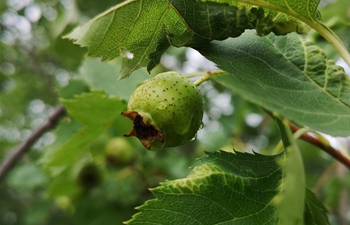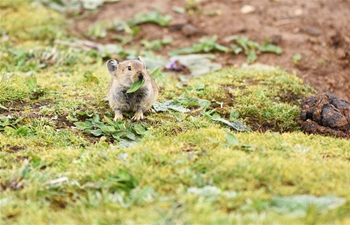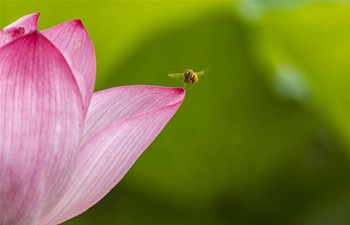NICOSIA, July 11 (Xinhua) -- Bird trappers in Cyprus feel the heat as more and more of them are caught red-handed and courts hand out severe penalties, an environmental organization said on Thursday.
Wild Life Cyprus, an organization dedicated to fighting the practice of bird trapping, said in a statement that a court sitting in the British Sovereign Base of Dhekelia, on the southeast coast of Cyprus where widespread bird trapping is practiced, imposed fines on four persons and additional 18-month suspended jail sentences of three of them.
"These penalties match the severity of bird trapping as a wildlife crime and serve to remind that those involved will ultimately pay the price," the statement said.
Cyprus, under pressure of big fines by the European Union, is trying to stamp out the centuries-old bird trapping practice, especially by using mist nets, by introducing really biting penalties on offenders.
Wild Life said the court accepted as evidence footage shot by covert surveillance cameras mounted on trees in areas where the birds nest during their autumn migration to the south.
It said the grim video footage showed the trappers removing birds from mist nets, killing them with knives, tossing them on the ground and then putting them in a plastic bag.
"These latest convictions bring the total number of individuals convicted for illegal bird killing with the aid of covert surveillance to 26 since 2016, while the highest fine handed down so far amounts to 6600 euros," Wild Life said.
However, it warned that despite the significant reduction in bird trapping, the problem is still a serious one and urged authorities to crack down on law-breaking restaurants, which cook and serve or sell "ambelopoulia" (vine birds), a migratory species of song birds that arrive in millions from August onwards and feed mostly on grapes and figs.
The birds are served as a gourmet dish at prices which may reach between 60 euros and 100 euros per dish.
For this reason, bird trapping which was mainly practiced with sticky lime sticks in rural areas by farmers as a means of supplementing their lean diet, developed into a multi-million euro business in the past 10 to 20 years.
It also developed into a headache for authorities, which were caught between public demand to allow the practice and pressure by EU and international environmental organizations to stamp it out.













